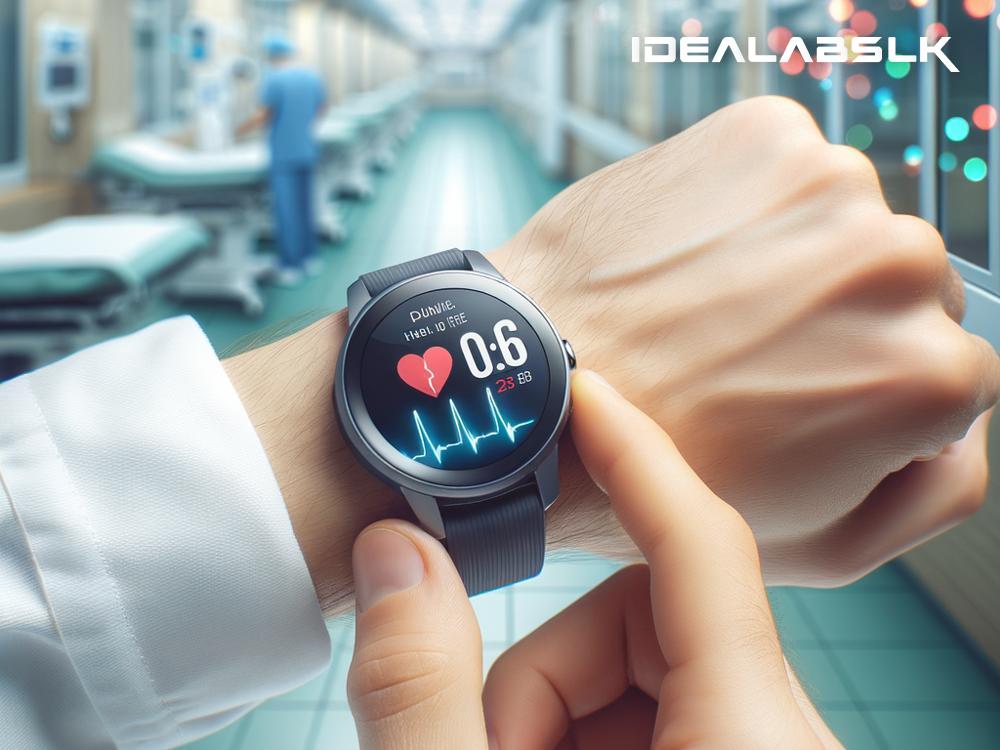Unveiling the Future of Health: The Power of Wearable Tech
In today's fast-paced world, everyone is in a race against time, often at the expense of their health. But what if our very own superhero gadgets could help us stay a step ahead, predicting health hiccups before they even happen? Enter the scene: healthcare wearables, not your everyday smartwatches, but sophisticated gadgets dedicated to keeping a tab on your health in real-time.
Gone are the days when wearables were merely pedometers counting your steps or devices tracking your sleep patterns. Today, healthcare wearables are revolutionizing how we monitor our health, offering a sneak peek into our body's intricate functions without stepping into a doctor’s office. This transformation is not just innovative; it is reshaping the future of predictive health.
The Heartbeat of Predictive Health
At the core of predictive health is the ability to anticipate potential health issues before symptoms arise, enabling preventative measures. This is where real-time monitoring of vital signs by wearables becomes a game-changer. Devices now can track heart rate, blood pressure, blood oxygen levels, and even glucose levels, providing a comprehensive view of one’s health at any given moment.
For instance, smartwatches can now alert you if your heart rate is abnormally high or low – signs that could suggest more serious underlying conditions like arrhythmia. This isn’t just convenient; it’s potentially life-saving.
A Steady Pulse on Health
The real magic lies in the continuous monitoring capability of these devices. It’s not just about catching health anomalies; it’s about understanding our bodies better. Through the constant collection of data, wearables provide a wealth of information that can highlight trends over time. This means you can see how your heart rate varies with exercise, stress, sleep, or even diet changes, offering insights into what’s working for your body and what’s not.
Beyond the Heart: A Holistic View
Modern wearables are pushing boundaries beyond traditional vital signs. They are exploring territories like electrodermal activity sensors for stress management and even devices that can predict menstrual cycles and ovulation with remarkable accuracy. This holistic approach to health monitoring empowers individuals not just to react to health issues but to preventively manage their well-being.
The Ripple Effect: Empowering a Health-Conscious Society
This surge in health consciousness driven by wearables has a ripple effect on the healthcare industry. With real-time data at their fingertips, individuals are more inclined to take charge of their health, leading to a proactive, rather than reactive, approach to healthcare. This shift not only has the potential to improve individual health outcomes but can also significantly reduce the burden on healthcare systems.
Barriers to Embrace: Privacy and Accuracy
Yet, the path to fully integrating wearables into predictive health is not devoid of challenges. Privacy concerns loom large, with sensitive health data constantly being transmitted and stored. Addressing these concerns with robust data protection policies is crucial for maintaining user trust.
Moreover, the accuracy of wearable devices is continually under scrutiny. While advancements are being made, ensuring the precision of health data collected by wearables is imperative for their effective use in predictive health.
The Road Ahead
Looking to the future, the potential of healthcare wearables in advancing predictive health is immense. With advancements in artificial intelligence and machine learning, wearables could not only interpret health data more accurately but also predict potential health issues with greater precision. Imagine a world where your watch can not only tell you about a potential health risk but also suggest lifestyle adjustments to mitigate that risk.
Conclusion
Healthcare wearables are more than just gadgets; they are the vanguards of a healthcare revolution. By enabling real-time monitoring of vital signs, they are unlocking the doors to predictive health, empowering individuals to stay one step ahead in their health journey. As technology advances, the future where wearables act as personal health guardians seems not just plausible but inevitable. The key to this future will be addressing the challenges head-on, ensuring that as these devices become smarter, they also become safer and more reliable for everyone. Indeed, the era of predictive health, powered by wearables, is just around the corner, promising a healthier tomorrow for all.

